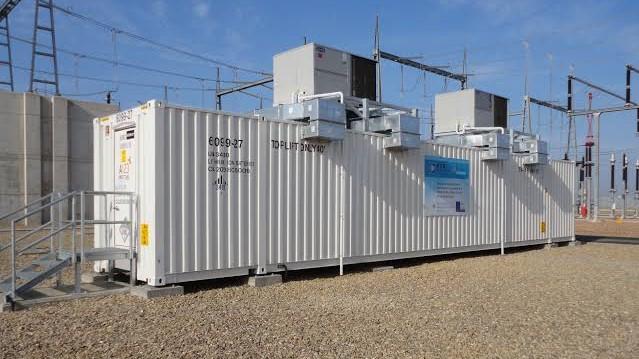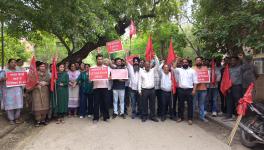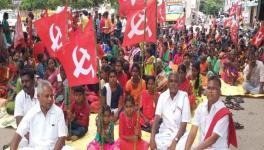Energy Storage Options for a Renewable Intensive Future

Image for representational use only.Image Courtesy : EQ International
With increase in penetration of intermittent energy resources such as wind and solar in the national grid, India’s power sector is facing a challenge of balancing this intermittent energy through backing down and ramping up existing power plants at very high rates. This discussion on balancing requirements of the grid is currently being hijacked by a push for Battery Energy Storage Systems (BESS), while ignoring other cheaper alternatives. Even with the rapid decline in battery cost, Pumped Storage Plants (PSP) prove to be the cheaper and effective option. The levelised cost of standalone BESS to manage peak demand would cost the consumer about Rs 7 to 8 per unit, as against the levelised cost of PSP, which is at Rs 2 to 3 per unit. The energy arbitrage required for this battery technology is nearly three times higher than that for PSP, which means that the consumer would pay three times more for the system balancing requirement when a BESS is installed. This lobby for immediate and large-scale integration of BESS, at this point, displays a complete lack of understanding of the opportunity costs of this technology. The growing fascination of Indian policymakers and their advisors for BESS, as a long term RE integration strategy, must be considered with caution. Otherwise, we may end up repeating the Enron debacle where we get hooked to a high-cost technology while the economic burden of this decision is borne by the consumers.
Globally, 96% of total storage capacity is provided by Pumped Storage Plants, with batteries accounting for only 1.1% of the total storage capacity (IRENA 2017). In India, the largest electricity storage technology is PSP and all operating plants amount to 4.8 GW of installed capacity. Compared to this, BESS is very new with one utility scale installation of 10 MW in Delhi and other small installations in Andaman and Nicobar, Puducherry, etc. PSP is a tested technology compared to utility scale BESS with Li-ion batteries (the most viable of many battery types) which are new and expensive.
India does not have BESS manufacturing capacity and any plans of installation would mean complete reliance on imported technology from foreign companies. So, large-scale installations will impact foreign exchange and their long run integration into the grid will impact energy security. On the other hand, the existing and upcoming PSPs have been constructed with the country’s own resources and have the potential for creating employment within the country.
There is also the problem of disposal of batteries as they run out and need replacement periodically. For example, Lithium ion batteries used for 1 cycle per day will run out in 10 years. And India does not have a waste management structure in place currently to be able to manage BESS-related waste processing. On the other hand, PSPs last for comparatively many more years. While they take longer to construct (about five years minimum), they function beyond their regulatory life span of 40 years.
But perhaps the most important point in this debate is that currently PSP is effectively a cheaper means of storage and support than BESS. Consider the case of Kadamparai PSP in Tamil Nadu which provides the state a saving between Rs 11.3 to 15.1 crore per month, by supporting during peak hours instead of sourcing this requirement from the Power Exchange. If the same requirement was to be sourced from a BESS, then with a levelised cost of storage (LCOS) in the range of Rs 7 to 8 per unit, the additional cost to the state would be in the range of Rs 25.7 to 30.2 crore per month. This is more expensive than sourcing this requirement from the Power Exchange. The battery prices are expected to decline over time, but to achieve parity with the Kadamparai tariff of Rs. 1.28/unit, the battery price must fall to $20/unit of capacity. It must be noted that current battery prices stand at $176/unit.
To meet current and projected requirements up to 2030, giving undue attention to BESS while ignoring existing and better means is not only unnecessary, but is likely to drive the power sector towards an even worse crisis-like situation than it is currently facing. The table below summarises the status of PSP in India signifying the investment we have already made for storage capacity.
Table 1 â Status of PSP in India (Source: 43rd Standing committee on Energy 2019)
For non-operational PSP, it would be cheaper to refurbish than to install a BESS of the same capacity. For example, Sardar Sarovar Project has an existing tariff of Rs 2.09 per unit. With the development of its lower reservoir, it can operate in pumped storage mode and this would result in a tariff not exceeding Rs 4 per unit. This would still fare cheaper than the levelised cost for BESS.
The Power sector today faces high procurement cost, regulatory roadblocks, the challenge of integrating must run renewable energy projects, and rapidly accumulating non-performing assets. Solutions for this crisis cannot emerge from a blinkered assessment of the problem where lobbyists with vested interests can get away with suggestions that profit them and put the sector and consumers at a disadvantage. India, if it must (and only with a plan for the future), may consider how to expand its battery manufacturing capacity, instead of pushing for large scale deployment of BESS. And only after a systematic study can we consider BESS installations wherever necessary—by identifying regions where these should be installed. Because the fact still remains that PSPs have a clear advantage over BESS currently and will continue to do so at least in the near future. Any planning for the energy grid must be made not by obscuring the role of available technology and knowledge, but by transparently considering them and choosing the best possible options.
Also watch: Know Why India Is Facing a Crisis in the Power Sector
Get the latest reports & analysis with people's perspective on Protests, movements & deep analytical videos, discussions of the current affairs in your Telegram app. Subscribe to NewsClick's Telegram channel & get Real-Time updates on stories, as they get published on our website.
























